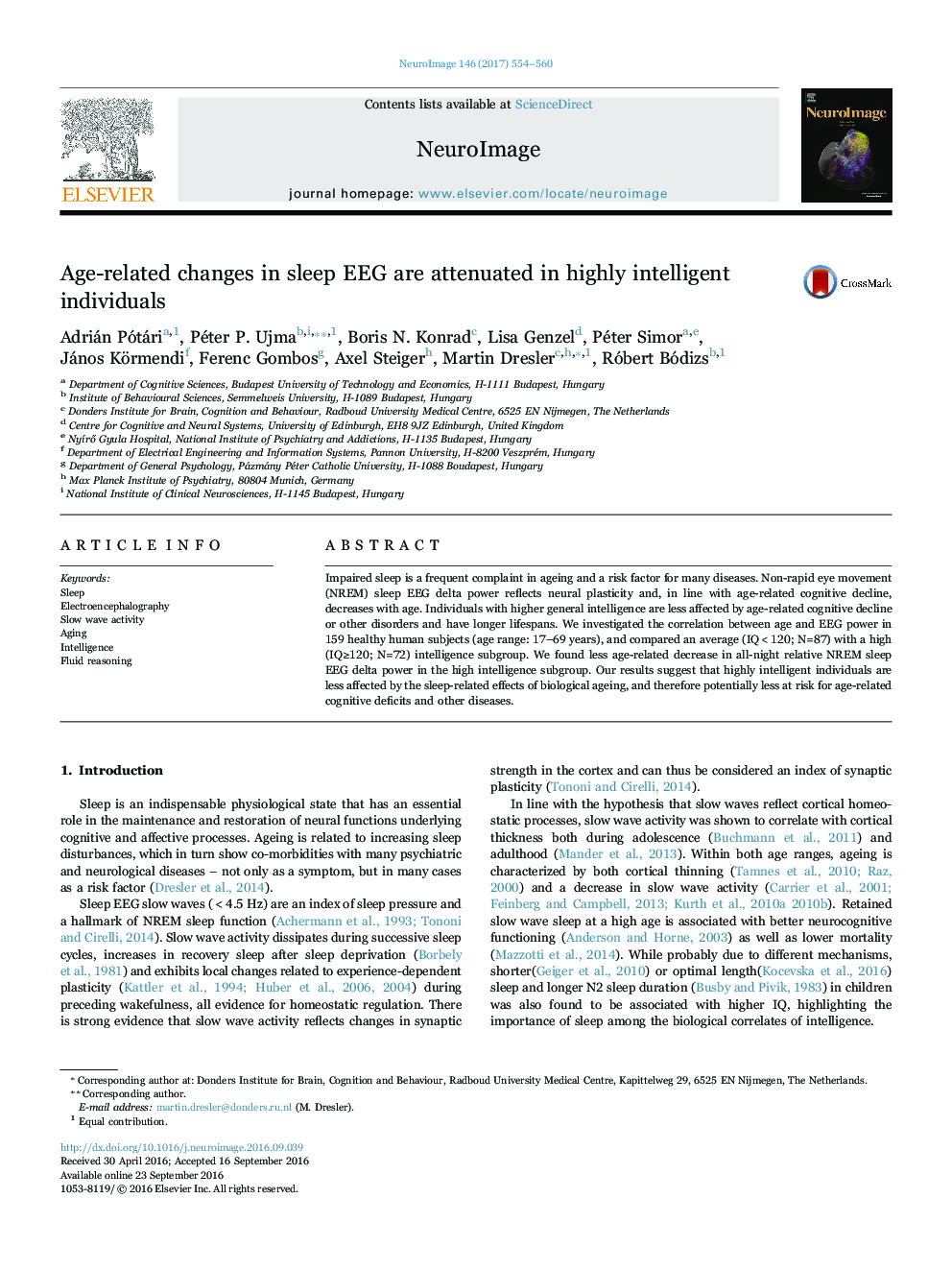| Article ID | Journal | Published Year | Pages | File Type |
|---|---|---|---|---|
| 5631363 | NeuroImage | 2017 | 7 Pages |
Impaired sleep is a frequent complaint in ageing and a risk factor for many diseases. Non-rapid eye movement (NREM) sleep EEG delta power reflects neural plasticity and, in line with age-related cognitive decline, decreases with age. Individuals with higher general intelligence are less affected by age-related cognitive decline or other disorders and have longer lifespans. We investigated the correlation between age and EEG power in 159 healthy human subjects (age range: 17-69 years), and compared an average (IQ<120; N=87) with a high (IQâ¥120; N=72) intelligence subgroup. We found less age-related decrease in all-night relative NREM sleep EEG delta power in the high intelligence subgroup. Our results suggest that highly intelligent individuals are less affected by the sleep-related effects of biological ageing, and therefore potentially less at risk for age-related cognitive deficits and other diseases.
